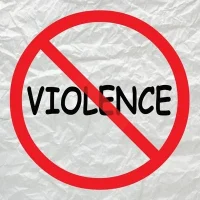Deadline: 31-Oct-2025
Submissions are now open for the IWRS Student Research Award in Welfare to encourage graduate student scholars engaging in evidence-based, theoretically-grounded research on any aspect of insect or understudied invertebrate welfare.
This award will be given to a graduate student whose research has the greatest potential to make a substantive contribution to their understanding of welfare in these taxonomic groups in farmed, wild, or research contexts. This $2,000 award shall be given annually to a graduate student conducting research related to insect or understudied invertebrate welfare. Award funds can be used for research/scholastic expenses or as stipend assistance to support the student as they work.
Eligibility for this award is open to any current graduate student, including those pursuing MS, MA, or PhD degrees, who are conducting research focused on insect or understudied invertebrate welfare, provided they have not yet defended their PhD thesis. Applicants from a wide range of disciplines are encouraged to apply, including philosophy, comparative cognition, economics, entomology, marine biology, welfare science, agricultural science, environmental science, physiology, and animal behavior. There are no restrictions on nationality, though awards will not be paid to recipients located in, or for research that will take place in, jurisdictions, countries, or regions subject to trade restrictions, embargoes, or sanctions imposed by the United Nations or the United States of America.
The proposal must follow a specific format. The first page should be a cover page that includes identifying information such as the applicant’s name, position, university affiliation (with department and address), email address, and the advisor’s name, affiliation, and email. Applicants should also note how they found the award. The second page must include a signed support letter from the research advisor, using the template provided at the end of the document. This will serve as page two of the application. The third page should be a one-page research proposal, written in single spacing with 12-point Times New Roman font. This proposal should include a descriptive title of 20 words or fewer, an introduction that reviews the relevant literature to help the committee understand the applicant’s scholarship and anticipated contributions, and clearly defined project aims. The aims must include a statement of goals, the species or taxa of interest, and justification of the chosen methodology, if applicable. The feasibility of the project should also be addressed with details about the timeline, required resources, and how they will be obtained, including the role of the grant in securing them. If the project involves fieldwork, applicants should confirm that they will obtain the necessary permissions or permits.
The fourth page should present a rough budget, accompanied by a paragraph explaining how the award funds will be allocated to support the project’s scholarly goals. The fifth page should be a one-page impact statement describing the anticipated impact of the research and outlining any expertise or qualifications that support the applicant’s ability to achieve this impact. Impact may be broadly defined and could include improvements to the lives of insects, educational benefits, or theoretical, methodological, social, or cultural contributions. The sixth page should include citations for both the research proposal and the impact statement. Beginning on page seven and continuing as needed, applicants must provide a statement on the ethical conduct of live animal research.
For more information, visit IWRS.









































